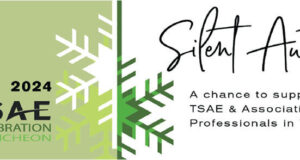Quick Tips: Tier 2 Meetings Cities, Consultants

Size Matters
Chicago shines, Orlando is awesome and what happens in Vegas is always noteworthy, but some meetings don’t require the convention center kings – or any large venue, for that matter. And while Texas often likes to do “everything bigger,” association planners in the Lone Star State know that isn’t always the best philosophy when it comes to site selection.
Before making your choice, the first and most logical question to ask is: What is my group’s preference? You may know your group’s goals for the event, but it’s also important to know their preferences. Smaller board-related events may call for a gourmands’ delight, but simple foodies (or those for whom F&B needs are simple) may love the simplicity of a favorite local truck. Are they culture vultures who want to meander cooler neighborhoods or would they be happy getting shuttled to a more mainstream venue?
A recent IACC report noted that 66 percent of venue operators anticipate that flexible meeting paces will become the most important part of venue selection in the next three to five years. So if you’re looking at a small-to-medium-sized venues, it’s an important factor to consider. Go through your short list and note which offer traditional meeting options along with modern formats – ask about furniture options. Communal tables, fun seating options (bean bag chairs? Fireside-chat style?) are wonderful ways to mix up the vibe depending on your group’s needs.
Looking to take your Texans on the road? Keep an eye out for venues that suit according to the above, but in the meantime – consider a few smaller towns that are long on great venues, attraction and vibe:
Omaha. How long has it been since you visited? In recent years, this charming, historic city has exploded with new hotel options. The Omaha Marriott, for example, has 14 meeting rooms (12,000+ square feet of space) and a great location near downtown and the city’s Old Market area, where shops, bars, galleries and more beckon. The city’s riverfront has never been more ideal for strolling. And if you want to take your attendees off site, consider the Henry Doorly Zoo, where incredible exhibits await groups of 50 to 300.
Bend. Got an outdoorsy group? Bend, Oregon, is a hiking and fishing paradise – but if you’ve got a few who would rather sample local craft beer, they won’t be disappointed. This is an excellent choice for planners looking to inject “stay a few days longer” appeal into their meeting to bump numbers. Bend is definitely a family destination, with free museum options and great deals at nearby ski resorts as well. The gorgeous Riverhouse on the Deschutes is part mountain resort and part meeting mecca, with more than 41,000 square feet of conference space.
Waco. Okay, we had to include at least one city close to home and this one made TripAdvisor’s list of “Destinations on the Rise” for 2018. From the Texas Ranger Hall of Fame Museum (6,000 square feet of event space) to the slick Hotel Indigo (conference table for 12, theater for 100 and a bunch of options in between), there’s loads of fun venue options. And if you think the only peppers in Texas are spicy, you need to visit the Dr. Pepper Museum (also available for groups).
Definition for Consultation
Until they come up with a Magic 8 Ball just for planners (and it would have to be really exceptional), you may need to look to a professional consultant to help your organization reach its goals. But before you charge someone outside the circle with such a task, it’s best to take time to define those goals carefully – ensuring the best results possible.
These elements include identifying your project’s parameters, the expected roles of those within your association and that of your contractor, a clear idea of the timetable and budget and what challenges you’re already expecting to encounter along the way.
Be wary, though, of making your consultant’s to-do list too specific; you don’t want to tie one creative arm behind your new ally’s back. Leave room for out of the box ideas. Then, divide and conquer. Don’t forget, an experienced, talented consultant will free up your team’s time to tackle all the necessaries for a great event, so while you’ll want to stay on top of progress, be sure to choose an experienced consultant (one who’s worked in your industry and others) who comes highly recommended: you don’t want to micro-manage. Free your new partner in planning to do his or her job, allowing you and your time to excel at yours.
Author Amy Drew Thompson is a professional lifestyle and travel writer.
Photo credit: ©iStock.com/svetlana57





